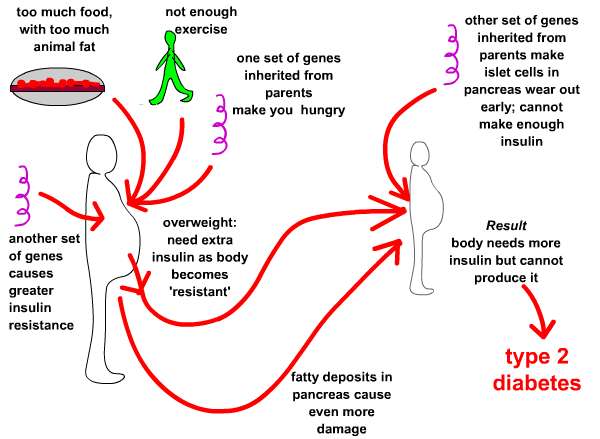Blog Archives
Type 2 Diabetes – Neural connection
What is Diabetes?
Diabetes / diabetes mellitus (DM) is a condition in which the body cannot properly store and use glucose for energy. To use glucose, the body needs a hormone called insulin that’s made by the pancreas. For some people with diabetes, the body becomes resistant to insulin. In these cases, insulin is still produced, but the body does not respond to the effects of insulin as it should. This is called insulin resistance. Whether from not enough insulin or the inability to use insulin properly, the result is high levels of glucose in the blood, or hyperglycemia.
People with diabetes are at greater risk for problems that involve damage to small blood vessels and nerves due to high levels of glucose in the blood. They are also at a greater risk of developing hardening of large arteries (atherosclerosis), which can result in a heart attack, stroke, or poor blood flow to the legs.
Types of Diabetes:
- Type 1 DM results from the body’s failure to produce insulin, and presently requires the person to inject insulin or wear an insulin pump. This form was previously referred to as “insulin-dependent diabetes mellitus” (IDDM) or “juvenile diabetes”.
- Type 2 DM results from insulin resistance, a condition in which cells fail to use insulin properly, sometimes combined with an absolute insulin deficiency. This form was previously referred to as non insulin-dependent diabetes mellitus (NIDDM) or “adult-onset diabetes”.
Type 2 diabetes makes up about 90% of cases of diabetes with the other 10% due primarily to diabetes mellitus type 1 and gestational diabetes. Rates of type 2 diabetes have increased markedly over the last 50 years in parallel with obesity: and India is the leading country with highest number of people with Type 2 diabetes. The causes of type 2 diabetes are shown in the following diagram:
Recent discovery of a gene by Indian Scientists:
The Indian Diabetes Consortium (INDICO), a Pan-India initiative led by CSIR-Institute of Genomics and Integrative Biology (IGIB) has recently discovered “TMEM163 gene” which encodes a probable vesicular transporter in nerve terminals. The study established a possible mechanism that the gene is responsible for impairing insulin secretion. . This effort places India to the list of countries which have the technology and human resource to perform high throughput complex genomic experimentation, at par with leading researchers in the developed world.
Sources:
wiki, bodyandhealthcanada.com, pib, medwebuk
